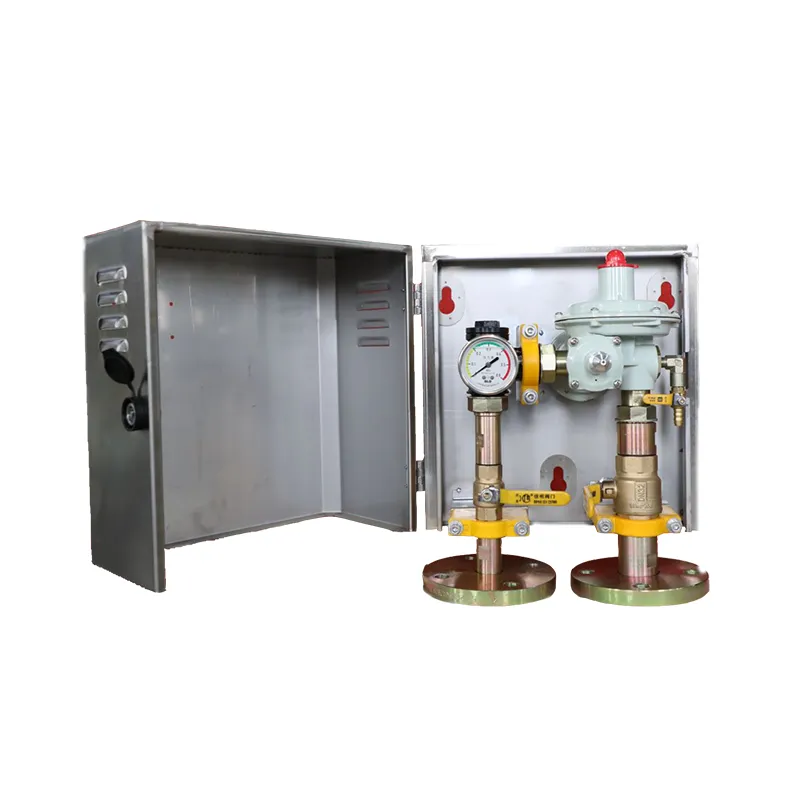
Dec . 04, 2024 09:22
Back to list
Close Valve Mechanism and Its Importance in Industrial Applications
Understanding the Importance of Shut-off Valves in Modern Systems
Shut-off valves play a critical role in various industries, ranging from oil and gas to water supply and manufacturing. These valves are designed to either allow or halt the flow of fluids, ensuring safety and efficiency within a system. This article explores the significance, types, and applications of shut-off valves.
What are Shut-off Valves?
Shut-off valves are devices used to control the flow of liquids or gases in pipelines. They can be fully opened or closed to stop the flow, which makes them essential for both operational control and emergency situations. While their primary function is to prevent leakage or protect equipment from pressure surges, they also enable maintenance operations by allowing sections of a system to be isolated.
Types of Shut-off Valves
Several types of shut-off valves are commonly used, each suited for specific applications
1. Gate Valves These are used primarily in large pipes where a straight-line flow of fluid and minimal pressure drop is desired. Gate valves are fully opened or closed; they are not suitable for throttling purposes.
2. Ball Valves Known for their quick operation, ball valves use a spherical disc to control flow. They are favored for their durability and ability to provide a complete seal when closed, making them ideal for gas and liquid applications.
.
4. Check Valves While not traditional shut-off valves, check valves allow flow in one direction while preventing backflow. They are crucial in preventing damage to pumps or equipment caused by reverse flow.
صمام الإغلاق

5. Butterfly Valves These valves use a rotating disc to manage flow and are often employed in large pipelines. They provide a compact design and low pressure drop, making them suitable for various industrial applications.
Applications of Shut-off Valves
Shut-off valves are ubiquitous in many sectors
- Water Supply Systems In municipal water supply and irrigation systems, shut-off valves are used to control the distribution of water, facilitating maintenance without service disruption.
- Oil and Gas Industry Shut-off valves are critical in pipelines and refineries. They help manage flow rates and protect against leaks and spills, which can have catastrophic environmental impacts.
- Heating, Ventilation, and Air Conditioning (HVAC) In HVAC systems, shut-off valves regulate the flow of refrigerants and water, assisting in temperature control and system maintenance.
- Manufacturing Various manufacturing processes rely on shut-off valves to control the flow of raw materials, chemicals, and finished products, improving process efficiency.
Conclusion
In conclusion, shut-off valves are vital components in a wide array of systems, where they ensure safety, reliability, and efficiency. Understanding the different types of shut-off valves and their specific applications can help in selecting the right valve for a given task. Regular maintenance and proper installation of these valves also play a crucial role in system performance, highlighting the need for trained professionals in valve selection and management. As industries evolve and technologies advance, the importance of shut-off valves will only continue to grow, affirming their role as essential tools in maintaining operational integrity.
Latest news
-
Safety Valve Spring-Loaded Design Overpressure ProtectionNewsJul.25,2025
-
Precision Voltage Regulator AC5 Accuracy Grade PerformanceNewsJul.25,2025
-
Natural Gas Pressure Regulating Skid Industrial Pipeline ApplicationsNewsJul.25,2025
-
Natural Gas Filter Stainless Steel Mesh Element DesignNewsJul.25,2025
-
Gas Pressure Regulator Valve Direct-Acting Spring-Loaded DesignNewsJul.25,2025
-
Decompression Equipment Multi-Stage Heat Exchange System DesignNewsJul.25,2025

